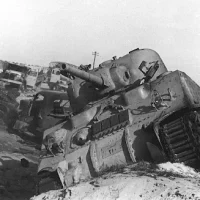Gamal Abdel Nasser was one of the most influential modern-day leaders in the Middle East. As part of the Free Officers Movement, he helped overthrow King Farouk I in 1952 [read about the U.S. embassy’s response to the 1952 Cairo riots] and began modernizing Egypt. He took a hard-line approach towards Western domination of Egypt… Read More "The Suez Crisis — And A Different Side of Nasser"
Combating Blatant Racism during an Evacuation from Liberia
The process of evacuating a country is filled with unexpected challenges. Many of these are logistical, while others include safety concerns that arise as a result of the unstable conditions. In this excerpt from a November 1995 interview with Charles Stuart Kennedy, Ambassador James Bishop, Jr. discusses a different type of challenge: a social issue… Read More "Combating Blatant Racism during an Evacuation from Liberia"
The 1958 U.S. Marine Invasion of Lebanon – It was no day at the beach
1958 — Lebanon was yet again at the forefront of foreign policy concerns. Gamal Abdel Nasser, one of the most prominent politicians of the postwar world, was powerful not only in Egypt, but also in much of the Arab World. Known for his Arab nationalism and sharp criticism of Western power, his influence reached many… Read More "The 1958 U.S. Marine Invasion of Lebanon – It was no day at the beach"
Escape from the Congo
During the Congo Crisis (1960-1966), which began after the colony was granted independence from Belgium, the province of Katanga declared itself a sovereign state. The situation in the Congo became so grave that in November 1961, the UN Security Council adopted Resolution 169 to remove foreign military and other personnel not under the U.N. Command,… Read More "Escape from the Congo"
The Tiananmen Square Massacre — June 4, 1989
The 1989 massacre at Tiananmen Square was one of the most heart-wrenching displays of state suppression of peaceful assembly in recent history. Following the death of pro-reform Communist leader Hu Yaobang in April 1989, thousands of Chinese students gathered in Beijing’s Tiananmen Square to march in his memory. Within days the gathering had transformed into… Read More "The Tiananmen Square Massacre — June 4, 1989"
Apocalypse Not, Part II
On April 29, 1975, Francis Terry McNamara, then Consul General, finally received orders to evacuate the Consulate General in Can Tho, Vietnam. By that time, the U.S. had resigned itself to the fall of Saigon and McNamara and others had been evacuating the most vulnerable Vietnamese staff. McNamara had also been preparing for a water-borne… Read More "Apocalypse Not, Part II"
Apocalypse Not – The Evacuation from Can Tho, Vietnam — April 1975
The shaky peace that had held in Vietnam since the signing of the Paris Peace Accords in 1973 began to crumble in late 1974 after North Vietnam began a series of military offensives which pushed the South Vietnamese army back on its heels. By early 1975 it had become painfully apparent that there would not… Read More "Apocalypse Not – The Evacuation from Can Tho, Vietnam — April 1975"
The Fall of Saigon — April 30, 1975
April 30, 1975 will long be remembered as the day that Saigon fell and with it, the end of U.S. involvement in Vietnam. It also marked the beginning of Vietnam’s unification as a “socialist republic.” North Vietnamese forces began their final attack on Saigon on April 29, with a heavy artillery bombardment. This bombardment at the… Read More "The Fall of Saigon — April 30, 1975"

